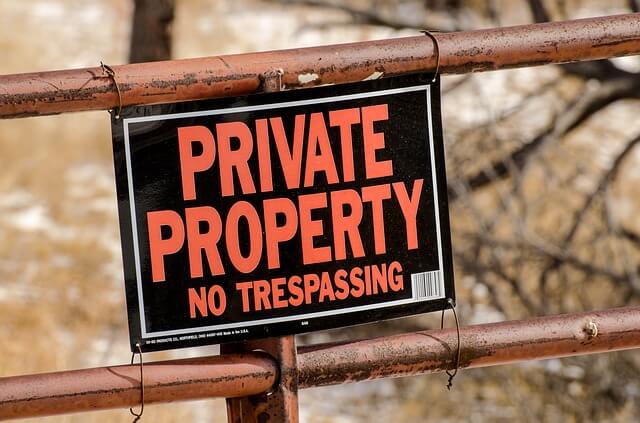How Long Does It Take To Evict A Squatter In DC? – Navigating the legal system can be a daunting task, especially when dealing with an eviction process. If you’re a property owner in Washington, DC, and have a squatter on your property, you may be wondering how long it will take to evict them. Well, the answer isn’t as straightforward as you may think. The process can vary depending on several factors, such as the type of property, the reason for eviction, and the specific circumstances surrounding the case. Whether you’re a new landlord or a seasoned property owner, it’s crucial to understand the eviction process and the legal requirements involved.
In this article, Eastcoastlaws.com will take a closer look at the eviction process in DC and explore how long it takes to evict a squatter in the nation’s capital. So, let’s dive in and find out what you need to know to protect your property rights and navigate the legal system with confidence.
Understanding Squatters And Their Rights
Before we dive into the eviction process, it’s important to understand who squatters are and what rights they have. Squatters are individuals who occupy a property without the owner’s permission or legal right. In Washington, DC, squatters are not recognized as tenants, and they do not have any legal right to remain on the property. However, the process of evicting a squatter can be complicated, and there are legal requirements that must be met before the eviction can take place.
Squatters can be anyone, from individuals seeking shelter to opportunistic individuals trying to take advantage of an unoccupied property. Regardless of the reason for their presence, squatters can cause significant damage to a property and create a safety hazard for neighbors and the community. As a property owner, it’s essential to understand your rights and legal options for dealing with squatters in DC.
The Legal Process For Evicting A Squatter In DC
The process for evicting a squatter in DC is similar to the process for evicting a tenant. However, there are some key differences to be aware of. As mentioned earlier, squatters are not recognized as tenants, and they do not have any legal right to remain on the property. Therefore, the eviction process can be expedited if the proper legal steps are taken.
The first step in the eviction process is to provide the squatter with a written notice to vacate the property. This notice must be delivered in person or by certified mail, and it must provide a specific date by which the squatter must vacate the property. If the squatter does not vacate the property by the specified date, the property owner can file an eviction lawsuit in court.
Once the eviction lawsuit is filed, the squatter will be served with a summons and a copy of the complaint. The complaint will outline the reasons for the eviction and the legal basis for the eviction. The squatter will have a specific amount of time to respond to the complaint, and if they fail to respond, the property owner can obtain a default judgment in their favor.
Timeline For Evicting A Squatter In DC
Owners are usually required to give 30 days’ notice, but some reasons for evictions require longer periods – up to 180 days. Exceptions to the notice requirement include cases where the tenant is using the property as a drug haven or if the tenant failed to pay rent and waived their right to notice in the lease.
The timeline for evicting a squatter in DC can vary depending on several factors. However, in general, the eviction process can take anywhere from a few weeks to several months. The timeline can be affected by factors such as the type of property, the reason for eviction, and the specific circumstances surrounding the case.
In most cases, the eviction process can take several weeks to complete. This includes the time it takes to provide the squatter with a written notice to vacate, the time it takes to file an eviction lawsuit in court, and the time it takes to obtain a judgment in your favor. Once a judgment is obtained, the squatter will have a specific amount of time to vacate the property voluntarily. If they fail to vacate the property voluntarily, the property owner can obtain a writ of possession, which allows the sheriff’s office to remove the squatter from the property.
Factors That Can Affect The Eviction Timeline
As mentioned earlier, several factors can affect the timeline for evicting a squatter in DC. One of the most significant factors is the reason for eviction. If the eviction is based on non-payment of rent, the eviction process can be expedited. However, if the eviction is based on other factors, such as damage to the property or illegal activity, the eviction process can take longer.
Another factor that can affect the eviction timeline is the type of property. If the property is a residential property, the eviction process can be more complicated than if the property is a commercial property. This is because there are specific legal requirements that must be met before a residential eviction can take place.
Finally, the specific circumstances surrounding the case can also affect the eviction timeline. For example, if the squatter has a history of violence or criminal activity, the eviction process can be more complicated and time-consuming.
Steps To Take Before And During The Eviction Process
Before initiating the eviction process, there are several steps that property owners should take. First, it’s essential to document the squatter’s presence on the property. This can include taking photos of the property, keeping a record of any damage caused by the squatter, and keeping a record of any interactions with the squatter.
It’s also important to consult with an experienced real estate lawyer before initiating the eviction process. A lawyer can help you understand your rights and legal options, and they can advise you on the best course of action for your specific circumstances.
During the eviction process, it’s important to follow all legal requirements and deadlines carefully. Failure to comply with legal requirements can delay the eviction process and potentially harm your case.
Legal Remedies For Dealing With Squatters In DC
In addition to the eviction process, there are other legal remedies available for property owners dealing with squatters in DC. One option is to file a trespassing lawsuit against the squatter. This can be an effective way to remove the squatter from the property and obtain damages for any harm caused by the squatter.
Another option is to file a lawsuit for nuisance. This can be an effective way to obtain an injunction that requires the squatter to stop engaging in any illegal activity on the property.
Working With A Lawyer For The Eviction Process
As mentioned earlier, it’s essential to work with an experienced real estate lawyer when dealing with a squatter in DC. A lawyer can help you understand your legal options and represent you in court if necessary. They can also help you navigate the eviction process and ensure that all legal requirements are met.
When choosing a lawyer, it’s important to choose someone with experience in real estate law and eviction proceedings. You should also look for a lawyer who has a track record of success in similar cases.
Preventing Future Squatting Situations
To prevent future squatting situations, it’s essential to take steps to protect your property rights. This includes securing your property with locks and security systems, regularly inspecting your property for signs of squatters, and addressing any issues promptly.
It’s also important to have a clear lease agreement in place if you’re renting out your property. The lease agreement should outline the specific terms of the tenancy and clearly state that the tenant is not allowed to sublet or allow anyone else to occupy the property without the owner’s permission.
Resources For Navigating The Legal System In DC
Navigating the legal system can be challenging, but there are resources available to help property owners in DC. The DC Bar Association provides a wealth of information on real estate law and eviction proceedings, and they offer a referral service to connect property owners with experienced real estate lawyers.
The DC Department of Consumer and Regulatory Affairs also provides information on landlord-tenant law and eviction proceedings. They offer a landlord-tenant resource center where property owners can get help with legal questions and access resources for navigating the eviction process.
Conclusion
Navigating the eviction process in DC can be challenging, but it’s essential to understand your legal rights and options as a property owner. By working with an experienced real estate lawyer and following all legal requirements carefully, you can protect your property rights and ensure a successful eviction process. Remember to take steps to prevent future squatting situations, and utilize the resources available to you to navigate the legal system with confidence.







